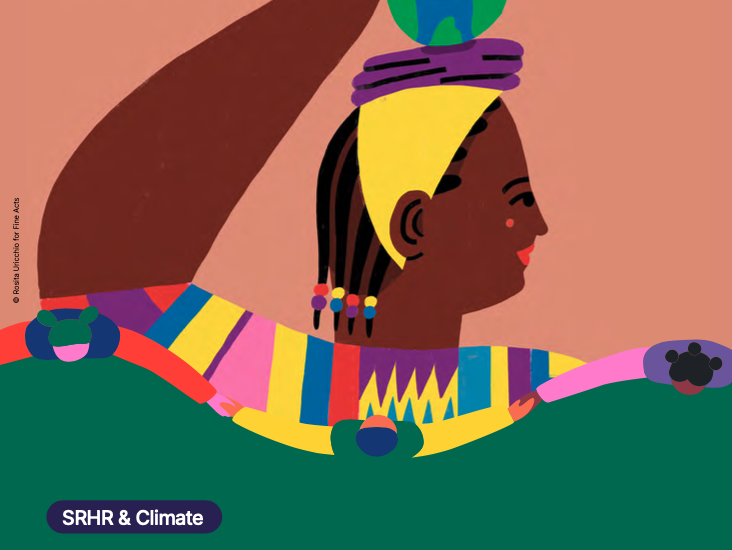The new report from Countdown 2030, a consortium of 15 European organizations committed to advancing sexual and reproductive health and rights of which Aidos is part, shows that only 6 European countries specifically recognize the interconnection between policies on sexual and reproductive health and rights and climate resilience.
The climate crisis intensifies existing global inequalities, with women and marginalized groups often bearing the greatest impact of the climate crisis. Limited access to sexual and reproductive health and rights (SRHR) worsens these vulnerabilities, as it hampers people’s ability to adapt to climate change and reduces resilience to climate-driven social and economic stresses.
A recent analysis of European policies shows that, although all 13 analyzed member states and EU institutions prioritize both sexual and reproductive health and rights and climate action, only six donors – Denmark, France, Germany, Norway, the Netherlands and the United Kingdom – specifically recognize their connection. Of the 78 policies examined in the last decade, only 11 explicitly link these two areas. Where they intersect, the focus is often on how climate change threatens access to sexual and reproductive health and rights services or their potential to support climate adaptation efforts.
Likewise, European funding reveals limited investments in integrated projects for sexual and reproductive health and rights and climate. While European donors spent €19.5 billion on climate action and €8.5 billion on SRHR between 2020 and 2022, only €75 million specifically targeted both. However, when considering multi-sectoral projects with indirect links between SRHR and climate resilience, funding increases tenfold. United Nations agencies and other multilateral organizations represent the main funding channels, followed by various organizations and initiatives.
Italy is the only country among those analyzed that in 2023 during COP28 did not sign the commitment “Gender-responsive just transitions and partnership for climate action”. The agreement, aimed at enabling a just transition, included governments’ commitment to encourage gender-sensitive mitigation and adaptation strategies and to identify sources of financing and opportunities for women and girls in the regions most affected by climate change.
The Countdown 2030 Europe report calls on European donors to align policies, increase funding, improve transparency, conduct further research and build the capacity of their governments and support partner countries. By addressing health and human rights as part of climate strategies, European donors can create a more inclusive and resilient approach to the climate crisis.

